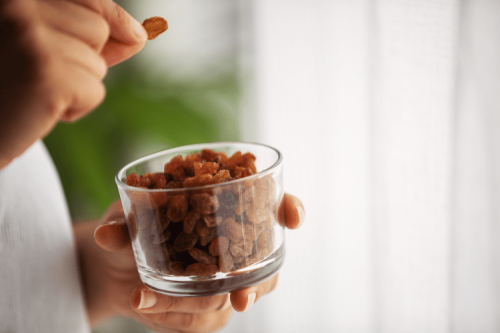
Waking up choking on vomit is a frightening experience that can leave you gasping for air and struggling to understand what has just happened. While this experience can feel isolated and rare, it often signals underlying health problems that require attention. This article will explore the causes, symptoms, risks, prevention strategies, and treatments in-depth to help you understand what’s happening and how to keep it from recurring.
Whether it happened to you once or it’s a recurring issue, this comprehensive guide will empower you with the knowledge to act and seek solutions.
What Is Happening When You Wake Up Choking on Vomit?
When you wake up choking on vomit, stomach contents, including acid or undigested food, have traveled back into your esophagus and reached your throat or airway. Instead of safely swallowing it back down, the material might end up in your breathing passage. This triggers a reflexive choking or coughing response as your body fights to clear the obstruction.
What Goes Wrong?
Under normal circumstances, several mechanisms protect us from this happening:
- Lower Esophageal Sphincter (LES): This muscle acts as a barrier between the stomach and esophagus, closing tightly to prevent backflow.
- Swallowing Reflexes: Your body swallows any stomach acid that might creep up during digestion.
- Airway Closure Reflex: Prevents material from entering the lungs.
However, issues such as weak LES muscles, abnormal sleeping positions, or relaxed reflexes (due to alcohol, medications, or health conditions) can disrupt this process. When this happens during sleep, it poses a higher risk because your body’s natural swallowing reflexes are slower.
Why Is It Dangerous?
While most choking episodes resolve themselves, some can lead to:
- Aspiration Pneumonia: When stomach contents are inhaled into the lungs, causing infection.
- Airway Obstruction: Severe cases can completely block airflow.
- Chemical Pneumonitis: A lung inflammation caused by stomach acid exposure.
Understanding what causes this to happen is critical to addressing the problem.
The Causes of Waking Up Choking on Vomit
1. Gastroesophageal Reflux Disease (GERD)
GERD is a chronic condition where stomach acid flows back into the esophagus, irritating the lining and causing symptoms such as:
- Persistent heartburn
- Sour taste in your mouth
- Burping or regurgitating food
- Coughing that worsens at night
GERD is one of the most common causes of nighttime choking. When lying flat, gravity no longer helps keep stomach acid in place, making reflux easier, especially if the LES is weak.
2. Hiatal Hernia
A hiatal hernia occurs when part of your stomach pushes through your diaphragm, weakening the LES. This allows acid and food to rise into the esophagus, particularly when lying down. People with hiatal hernias are more likely to experience reflux-related choking episodes.
3. Sleep Apnea and Positional Factors
Obstructive sleep apnea (OSA) is when your airway temporarily collapses during sleep, causing breathing pauses. This increases abdominal pressure, forcing stomach contents upward. Additionally:
- Sleeping flat on your back makes reflux worse.
- Erratic breathing can create airway suction, pulling acid upward.
4. Dietary and Lifestyle Triggers
Certain habits make reflux and choking on vomit more likely:
- Eating large, high-fat meals before bed
- Alcohol and caffeine consumption
- Spicy or acidic foods can irritate the esophagus
Smoking and sedatives or muscle relaxants (including alcohol) also weaken the LES.
5. Obesity
Carrying excess weight increases pressure on the stomach, pushing acid and digestive material back into the esophagus.
Recognizing the Symptoms
A single choking episode can be jarring, but when it recurs, it’s often accompanied by additional symptoms that point to the underlying cause.
Symptoms of Waking Up Choking on Vomit
- Burning Sensation: A painful irritation in your throat caused by stomach acid.
- Coughing Fits: Persistent coughing as your body works to clear the airway.
- Shortness of Breath: Difficulty taking a deep breath after choking.
- Sour/Bitter Taste: The regurgitated acid leaves a metallic or acidic taste.
- Rapid Heartbeat & Panic: Common responses to the feeling of suffocation.
What to Do Immediately After a Choking Episode?
- Sit Upright: Quickly elevate your upper body to prevent further reflux and open your airway.
- Sip Water Carefully: Rinse your throat to neutralize acid and clear lingering irritants.
- Restore Calm Breathing: Practice slow, deep breaths to reduce panic and ease strain on your lungs.
- Monitor Symptoms: If you experience intense chest pain, wheezing, or difficulty inhaling, seek emergency care immediately.
If episodes persist, consult with a healthcare professional to prevent serious complications.
How to Prevent Nighttime Choking?
Prevention is focused on addressing reflux triggers, optimizing sleep habits, and tackling underlying health conditions.
1. Diet Adjustments
- Avoid trigger foods like spicy dishes, tomatoes, citrus fruits, caffeine, alcohol, and greasy meals.
- Eat smaller portions earlier in the evening, at least 2–3 hours before bedtime.
- Focus on reflux-safe meals, such as oatmeal, lean proteins, and non-citrus fruits.
2. Sleep Position Optimization
- Sleep on your left side to use gravity to keep acid below the esophagus.
- Elevate your head and upper body by using a wedge pillow or adjustable mattress. Avoid sleeping completely flat.
3. Healthy Weight Management
Excess body weight contributes significantly to reflux. Losing weight through a nutritious diet and regular exercise can lower pressure on your stomach and reduce GERD symptoms.
4. Strong Sleep Hygiene
- Keep a regular sleep schedule to improve sleep quality.
- Avoid sedatives or alcohol at night, which can relax the LES and worsen apnea.
5. Treat Medical Conditions
For persistent cases, consult a doctor for diagnostic testing such as an endoscopy or sleep study. Conditions like GERD, sleep apnea, or a hiatal hernia often need professional intervention.

Prevent Nighttime Choking
Treatments for Persistent Reflux and Choking
Medications for GERD
- Antacids: Provide quick relief by neutralizing acid.
- H2 Blockers: Reduce acid production for sustained relief.
- Proton Pump Inhibitors (PPIs): The most effective option for severe or chronic GERD.
Surgical Options
Surgery might be required for severe cases:
- Fundoplication: Strengthens the LES to prevent reflux.
- Hiatal Hernia Repair: Reduces reflux caused by anatomical abnormalities.
Sleep Apnea Treatments
A CPAP (Continuous Positive Airway Pressure) machine or oral devices can help maintain airflow and reduce apnea-related choking risks.
Frequently Asked Questions
Q: What is the connection between reflux and waking up choking on vomit?
A: Reflux, particularly gastroesophageal reflux disease (GERD), can cause stomach acid to flow back into the esophagus, leading to the regurgitation of stomach contents. If this occurs during sleep, it may result in waking up choking on vomit.
Q: Can sleep apnea cause someone to wake up gasping for air?
A: Yes, obstructive sleep apnea (OSA) can lead to episodes where breathing is interrupted during sleep, causing individuals to wake up gasping for air. This may also coincide with other symptoms like choking in your sleep.
Q: How does acid reflux affect sleep quality?
A: Acid reflux can significantly disrupt sleep quality by causing discomfort such as heartburn and regurgitation. These symptoms may cause you to wake up at night, leading to sleep disturbances and potential choking incidents.
Q: What lifestyle changes can help reduce the risk of vomiting during sleep?
A: To reduce the risk of vomiting during sleep, it is advisable to avoid heavy meals before bedtime, maintain a healthy weight, sleep on your side, and elevate the head of your bed. Such changes can help minimize acid reflux and its associated symptoms.
Q: Can a hiatal hernia contribute to choking on vomit during sleep?
A: Yes, a hiatal hernia can exacerbate reflux symptoms by allowing stomach contents to flow back into the esophagus more easily, thereby increasing the risk of choking on vomit during sleep.
Q: What are the symptoms of sleep disorders that may cause choking?
A: Symptoms of sleep disorders such as obstructive sleep apnea may include loud snoring, gasping for air, waking up choking, and feeling extremely tired during the day. These conditions can also lead to heightened instances of choking on vomit.
Q: Is it common to choke on vomit while sleeping?
A: While choking on vomit during sleep is not extremely common, it can occur, particularly in individuals with underlying conditions like GERD, sleep apnea, or those who experience severe acid reflux at night.
Q: How can I tell if my choking episodes are related to sleep apnea or acid reflux?
A: To determine if choking episodes are related to sleep apnea or acid reflux, monitoring symptoms is crucial. If you experience excessive daytime sleepiness, loud snoring, and gasping for air, sleep apnea may be the cause. Conversely, if you frequently experience heartburn or regurgitation, acid reflux may be the issue. Consulting a healthcare provider may involve an endoscopy or sleep study for accurate diagnosis.
Q: Can sleep paralysis cause choking sensations during the night?
A: Sleep paralysis can lead to temporary inability to move or speak while falling asleep or waking up, which may cause panic and feelings of choking. However, it is distinct from physical choking caused by vomit or sleep apnea.
Final Thoughts
Waking up choking on vomit is a distressing but often treatable symptom of underlying health conditions like GERD, sleep apnea, or hiatal hernia. Addressing lifestyle factors, adjusting your sleep habits, and exploring professional treatment options can mitigate the risks and improve your quality of life.
Don’t ignore repeated episodes. Speak with a healthcare professional to rule out serious complications and find lasting solutions to help you sleep safely and soundly.








 Login with Google
Login with Google Login with Facebook
Login with Facebook